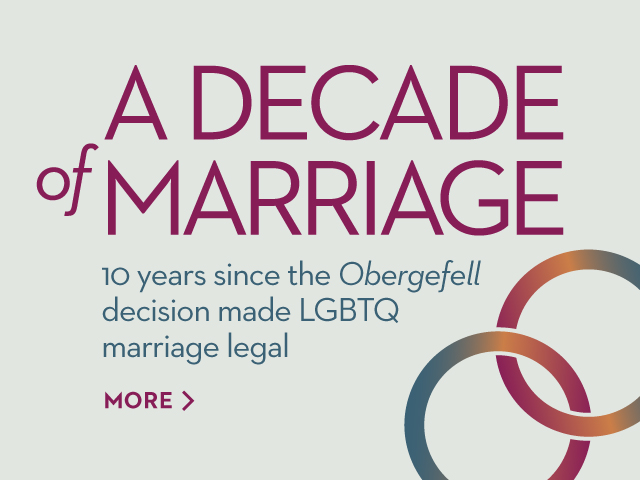November is National Adoption Month, and there are currently more LGBTQ parents waiting to adopt than there are children in the foster system. Unfortunately, some LGBTQ couples are denied the right to parent—and children are denied a home—because of discriminatory state policies governing same-sex adoption, and policies that allow adoption agencies to give preference to different-sex couples. Anti-LGBTQ bias and discrimination in the courts further leads to LGBTQ parents being denied custody of the children they already have, or being forced to make the devestating and untenable choice between retaining custody and coming out.
Right now, as many as 6 million children in the United States have an LGBTQ parent. LGBTQ families are geographically, racially, and ethnically diverse, and can be found in every community across the country. They are more likely to be binational, which often raises an additional set of challenges. Research tells us that children raised by LGBTQ parents fare equally well as children raised by non-LGBTQ parents. However, only 19 states and D.C. permit same-sex couples to jointly adopt, and only 13 states allow second-parent adoptions. The remaining states create legal quagmires for families that mean children are left unprotected by the law when a parent separates from their partner or when one parent dies. These laws also discriminate against LGBTQ families who want to adopt, leaving them with no recourse to do so in their home state.
Youth in the foster system are overwhelmingly youth of color, and 23,500 “aged out” of the foster system last year—meaning they turned 18 without ever being adopted. Statistics show that these youth are at a higher risk of poverty, homelessness, incarceration, and early parenthood. There are youth out there dreaming of a family, and couples dreaming of becoming parents, and yet these dreams may be unfulfilled depending on which state they call home.
Reproductive justice, as defined by one of NCLR’s partners SisterSong, is “the right to have children, not have children, and to parent the children we have in safe and healthy environments.” These discriminatory adoption policies deny reproductive justice to LGBTQ people, and perpetuate stigmas against LGBTQ parents that have been proven to be false. These policies are not in the best interests of children, which is not only the governing standard in court decisions respecting youth under 18, but is also a recognized International Human Right.
At the federal level, our congressional allies recognize the fact that due to this patchwork of discriminatory adoption and foster care policies, children in some states are denied a home and family. The Every Child Deserves A Family Act would restrict federal funding to states that discriminate based on sexual orientation or gender identity within their foster care and adoption policies, thus encouraging states to make decisions in the best interests of the child regarding children in foster care. Currently, the Act has 83 cosponsors in the House and 11 cosponsors in the Senate. These members of Congress know that the United States can do better for our nation’s children, and for LGBTQ families.
That is why this year, the Family Equality Council is sponsoring the Allies for Adoption campaign–to mobilize all LGBTQ people and their allies around ending discrimination in laws that govern who has the right to parent.
NCLR has taken the pledge to be an Ally for Adoption—have you?










